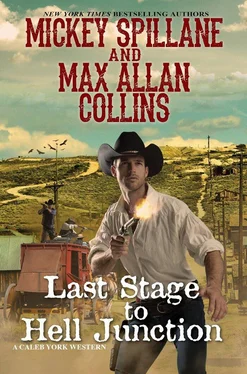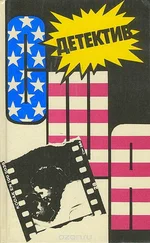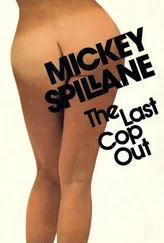Yet he had not yet admitted to himself that this was personal. He made himself think objectively about the people taken on that stage. He told himself the missing passengers were still alive. Had to be, because they were the stolen cargo.
Raymond Parker was the obvious target. He was among the most successful businessmen in the Southwest — someone powerful, who could authorize ransom money being spent. Whether Parker would do that or not remained to be seen; he was not the kind of man to be cowed, nor to give money to men who would likely kill him anyway. So the eventual outcome there was uncertain.
And then there were the women.
What a terrible twist of fate that on that stage were the two females who meant the most to him in this life (his mother being long dead).
Willa Cullen, if he would have been capable of admitting it to himself, was the girl he loved. He did not allow himself to imagine what trouble she might be facing; this would have overridden his common sense and he’d indeed have just followed that dust cloud at the fastest possible clip.
And as the dust cloud dissipated ahead, real clouds, dark ones, began rolling in, small at first, like smoke signals, then more like smoke from an unseen fire, as if a conflagration behind the mountain range was feeding the sky, billowing charcoal clusters.
If a storm was coming, he needed to outrace it, to beat it to the men making that smaller cloud below.
He could not stop his mind from wishing he had treated Willa better. That he’d have been the kind to courtly woo her and talk her into accompanying him to San Diego and that handsome Pinkerton post. But even on horseback, following a deadly trail threatened by a dark sky, he could see the foolishness of thinking that for one moment.
Willa had been her late father’s only child, the daughter who wasn’t a son, and for her the Bar-O was everything. She had made it plain to York that she would hand him that spread on a platter, that he could run the ranch with her and enjoy a prosperity few in the West would ever know.
But Caleb York was no glorified cowboy. He was a detective and that meant San Diego and the Pinks. And wasn’t it the woman’s role to do things the way her man told her to?
He damn near smiled at that. Truth was, if Willa had been that sort, she wouldn’t have attracted him in the first place. And yet how she’d schemed to keep him in Trinidad, in his sheriff’s post, and not have him leave for California as he’d promised. Only now that he was where she wanted him — staying on as sheriff, increasingly a part of the fabric of the town — they’d been driven apart by other forces.
The thing was, things had not been the same since York killed Willa’s fiancé.
Yes, the man into whose arms Willa had gone when she and York went bust was now one of those on his list of the deservedly dead. Wasn’t York’s fault that the son of a bitch had been after her money and land and likely plotted her very death.
But it had caused a rift, nonetheless. Even a strong girl like Willa didn’t like having a wedding yanked from out under her.
Those dark clouds were stampeding into one great black herd now, and lightning was dancing in them, God growling a rumbling approval. York’s coat and vest did not keep out the sudden cold, including chilling thoughts.
The other woman on that stage was Rita Filley.
The notion that he loved the saloon owner, too, had never crossed his mind, though he knew her in a way — the biblical one — that he did not yet know Willa. Somehow, though, York and Rita seemed more friendship than romance. She was a practical woman, Rita, and she did not seem to be pursuing him with matrimonial intent.
Mostly she was just a woman who did not have a man, and since of late he didn’t have a woman either, they got together and pooled their needs, time to time. Man did not live by bread alone, even if the Victory did serve a free lunch.
Superficially, Rita looked nothing like Willa, being nearly as dark as the former’s Mexican mother must have been, with eyes so brown they might have been black, with that nice flashing quality the prettier señoritas had.
Of course, Willa’s nordic blue eyes could flash, too, like that lightning up ahead. And the women’s bodies were similar. Willa was a mite taller, but God had blessed both gals with that nice hourglass shape so many females these days tried to produce with straps and lacing and such, corsets they called these instruments of torture. Neither Willa nor Rita needed such help. Both had pretty features in heart-shaped faces, too.
For some reason, he began to ride faster. Perhaps it was the threat of storm as daylight gave over to premature night.
Yes, men were going to die for what they’d done. While stray thoughts about both women floated through his mind, he rode through rough country for over an hour, until he was under a black sky pregnant with rain, that single thought always returning, drumming like the gelding’s hoofbeats: men were going to die for this.
The storm within him seemed to feed the threatened storm above.
He threaded through slopes until the earth turned rocky, and at the bottom of a hill that was damn near a mountain, led by the tracks of his prey, York came to a sloping road where rocks had been ground to pebbles by horses over time, a road that split off into two more only slightly narrower roads that led in various directions of high country, around the near mountain here on its either side, and another up into and disappearing among the various peaks. Beyond those were ever higher peaks, snow-capped.
Climbing off the gelding, walking the animal past a rocky outcropping, he doubted he was tracker enough to make anything out of the combination of sand, dirt, and small pebbles of these trails.
But he looked anyway.
And before he could tell a damn thing, the sky let him have it. The rain came shooting down, the thunder full-throated now, and as he settled and soothed the gelding under a rocky shelf, any trace of which trail the stagecoach might have taken was wiped out as weather became the accomplice of murderers.
In half an hour the sky got the storm out of its system. The only indication of the deluge was a remaining coolness and puddles that were sometimes almost pools.
Nothing to do now but head back to town; what he’d put the gelding through required him to take it at an even slower, steadier pace, easier on the horse but agony on York, whose mostly pleasant memories of the two women were blotted out by fears of what they were going through.
Burrell Crawley, sleeping on the chain-slung cot in his cell at the rear of the sheriff’s office, got woken up sharp.
The doc had given him laudanum again and that helped him sleep, and also took the edge off his aching foot. He even had his brown britches back on and the matching silk shirt. His boots remained off, however, and his foot had swollen some and the whole front part was bandaged.
His cell was not adjacent to the office, rather around the corner and down, the second of four, with only the first one looking onto the office itself. But Crawley could hear just fine from his cell, next to that one.
“Sheriff,” that fool Tulley was all but yelling, “I’m right good and dadblamed tired of sleepin’ behind bars at night, like I’m some kinder jailbird !”
Caleb York’s voice came loud and steady. “A jailbird is somebody who has already flown the coop, Deputy. That isn’t you.”
“You don’t have to tell me !”
“But you’re no prisoner. It’s not like you’re locked in at night.”
“Them city fathers, they put you in a room at the hotel! And I git a cell ? T’ain’t right. T’ain’t right nohow. And you make more’n twict what I does! And who is it has the harder job? Do you ever do night rounds? No! Ye leave that to Jonathan R. Tulley.”
Читать дальше





![Микки Спиллейн - Death of the Too-Cute Prostitute [= Man Alone]](/books/437201/mikki-spillejn-death-of-the-too-thumb.webp)